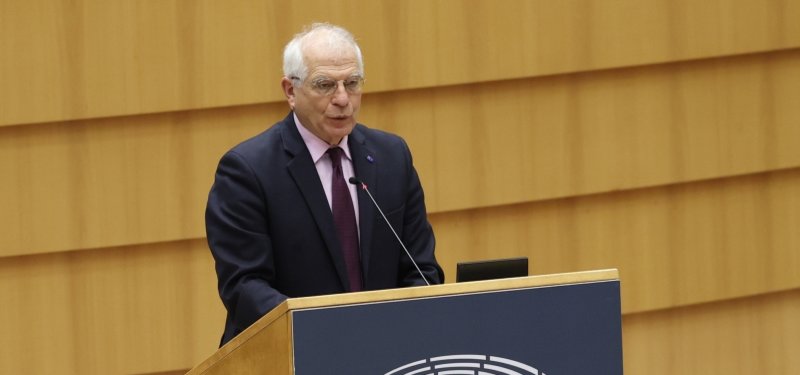
EU foreign policy chief defends visit to Moscow
- World
- Anadolu Agency
- Published Date: 02:00 | 10 February 2021
- Modified Date: 02:00 | 10 February 2021
European Union foreign policy chief Josep Borrell on Tuesday defended his recent controversial visit to Moscow in an address to a plenary session of the European Parliament.
"Foreign policy cannot be reduced to issuing statements from a safe distance, from my office at the Berlaymont," said Borrell, referring to the building in Brussels that houses the headquarters of the European Commission.
EU lawmakers discussed his trip, which was perceived as a "mistake" by many after the unfriendly gestures of his Russian hosts.
But Borrell pointed out that it was "the right time and place" to pay a visit last week to Moscow despite tensions between the bloc and the Russian government over the sentencing of opposition leader Alexey Navalny.
Borrell insisted that Navalny's case was "at the center of discussions" with Russian Foreign Minister Sergey Lavrov and that he asked for the opposition leader's immediate and unconditional release.
The top EU diplomat accused Russia of "going down a worrisome autocratic route" and having failed to "fulfill expectations to become a democracy" after the collapse of the Soviet Union.
However, he explained that Russia was the bloc's biggest neighbor with whom the EU had to find a peaceful way to live together.
CALLS FOR RESIGNATION
Borrell faced criticism for not responding to his Russian counterpart, who called the EU an "unreliable partner" during their joint press conference last Friday.
He also praised the Russian-developed Sputnik V vaccine which has not been approved yet by the EU regulator.
It has also been considered a disrespectful diplomatic move that only after his negotiations with Lavrov did the EU foreign policy chief learn from Twitter that three EU diplomats had been expelled from Russia for joining a pro-Navalny demonstration.
More than 70 members of the European Parliament signed a letter by their Estonian colleague Riho Terras calling for Borrell's resignation.
The letter argued that the "humiliating developments during the visit (…) have greatly damaged the European Union's reputation" and accused Borrell of "misjudgment in proactively deciding to visit Moscow and his failure to stand for the interests and values of the European Union."
Eric Mamer, the chief spokesperson of the European Commission, said Monday that European Commission President Ursula von der Leyen fully supported the top EU diplomat.
The Moscow City Court last week sentenced Navalny to two years and eight months in prison for violating parole.
But the court turned his suspended sentence in a 2014 criminal case into a full custodial sentence, handing him a three-and-a-half-year jail term minus nearly a year he spent under house arrest from Feb. 28 to Dec. 30, 2014.
The opposition leader was arrested in the Russian capital upon his return on Jan. 17 from Germany, where he had received treatment after alleged poisoning by Russian agents.

